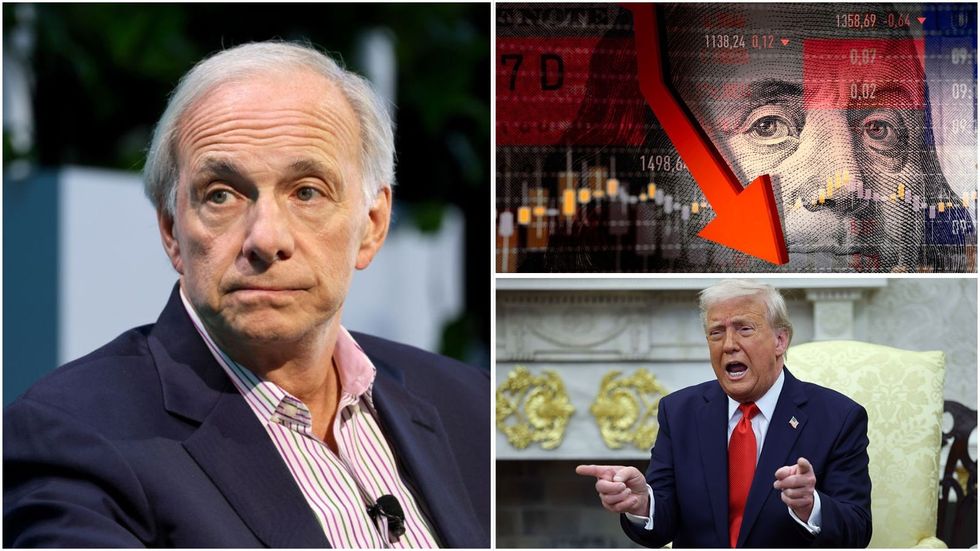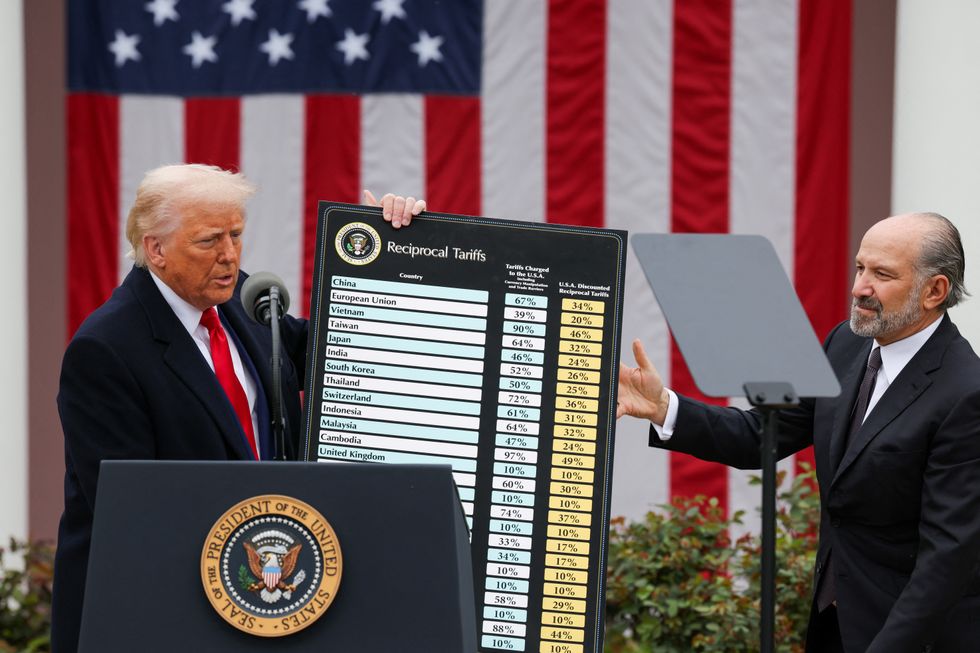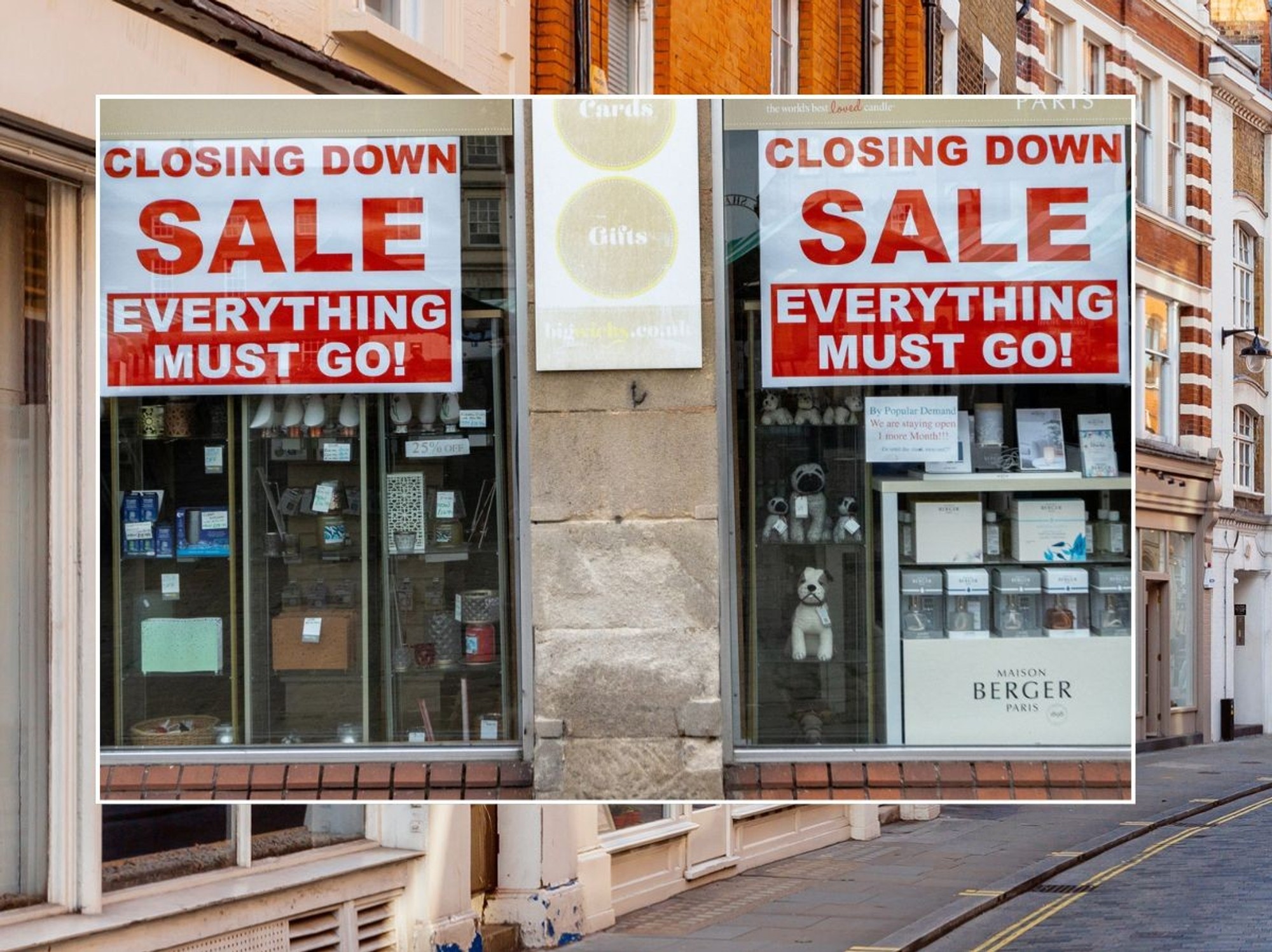Carole Malone takes aim at Rachel Reeves for 'trashing' UK economy with Spring Statement - 'What planet is she on?'
GB NEWS
A recession is defined as happening when a nation experiences two consecutive quarters of negative economic growth but some analysts are sounding the alarm over a potential depression under President Trump
Don't Miss
Most Read
Trending on GB News
Billionaire hedge fund manager Ray Dalio has issued a stark warning that the United States is "very close to a recession" as President Donald Trump's tariff policies threaten economic stability.
The founder of Bridgewater Associates, the world's largest hedge fund, told "Meet The Press" on Sunday that the current economic situation could potentially become "much more profound" than a typical recession.
Dalio, who successfully predicted the 2008 financial crisis, expressed concern that without proper management, the economy could face something "worse than a recession".
His warnings come as financial markets appear to be significantly underestimating the risk of an economic downturn in the face of President Donald Trump's sweeping tariffs, according to recent analysis.

The investor who predicted 2008 crash is now forecasting a recession
GETTY
Dalio drew concerning parallels to historical economic crises, stating that "such times are very much like the 1930s" during the Great Depression.
He pointed to a "breaking down of the monetary order" alongside "profound changes" in both domestic and world order. The hedge fund billionaire warned of a potential "supply-demand problem for debt" coinciding with tariff-related economic issues.
When pressed on whether this could mean a depression, Dalio avoided using the term but cautioned the situation could be "very severe".
His analysis suggests the current economic challenges extend beyond the technical definition of a recession as two negative quarters of GDP growth.
Despite the recent market turbulence, Wall Street appears to be significantly underpricing recession risk. From mid-February to early April, the S&P 500 fell 19 per cent before a relief rally reduced losses to just 12 per cent.
This decline falls far short of historical patterns. According to JPMorgan Chase analysis, the S&P 500 typically drops 37 per cent peak-to-trough during recessions.
Market darlings like Nvidia and Apple suffered steeper losses of about 30 per cent during the recent downturn. The current market reaction suggests investors may not be fully accounting for the potential severity of an economic contraction, analysts suggest.
The valuation metrics further highlight how markets may be underestimating recession risks. At last week's trough, the S&P 500 was still trading at 18 times analysts' 2025 earnings per share forecasts, based on FactSet data.
This remains significantly higher than typical recession levels, where multiples usually fall from 16 to 11 times expected earnings. Even in the shallowest recessions, valuations typically drop to 14 times earnings.
JPMorgan boss Jamie Dimon has predicted earnings forecasts would shrink by 5 per cent. If this materialises and the index falls to 11 times earnings, it could imply a further 40 per cent decline from current levels.
Former Treasury Secretary Janet Yellen has added to recession concerns, warning that new tariffs could have a significant economic impact on American households.
Her analysis suggests US families could face a £4,000 hit from the tariffs, further fuelling recession fears. Yellen noted that rising auto prices due to tariffs could signal a pullback in major purchases by consumers.
She observed that companies feel "paralysed by uncertainty" in the current economic climate. Yellen noted this business hesitation often leads to defensive cost-cutting and delayed investments, affecting both the stock market and job growth.
Furthermore, Yellen also flagged rising long-term yields amid a weakening dollar, suggesting investors may be questioning US fiscal leadership.
LATEST DEVELOPMENTS:

Global markets plunged earlier this month after President Donald Trump unveiled his tariff onslaught
REUTERSDespite the gloomy outlook, Dalio offered a glimmer of hope that economic disaster could still be averted.
"This could all be managed very well," he said, particularly if Congress takes action to reduce the budget deficit.
Companies are increasingly dropping earnings guidance, citing trade turmoil.
Wells Fargo boss Charles Scharf revealed the bank is monitoring credit drawdowns "really, really closely".








